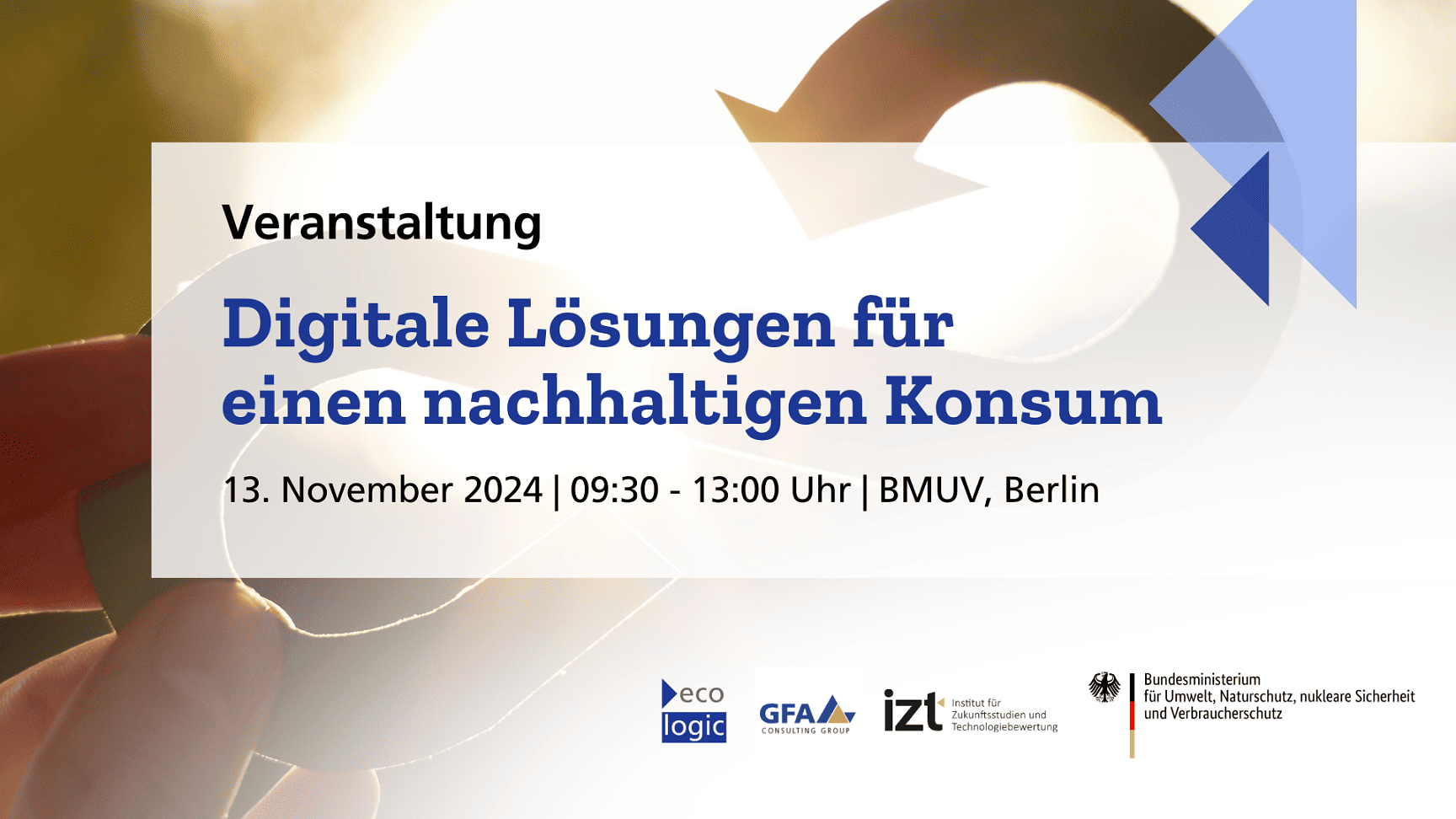Digital technologies have the potential to close economic loops, reduce CO2-emissions and increase resource efficiency. However, the possibilities of digitalisation for shaping a comprehensive circular economy are far from exhausted. This research project investigates how digital solutions can support consumers in aligning their consumption with sustainable and circular criteria.
In this context, Ecologic Institute, together with the Institute for Futures Studies and Technology Assessment (IZT) and the GFA's Digital Unit, is working on behalf of the Federal Ministry for the Environment, Nature Conservation, Nuclear Safety and Consumer Protection (BMUV) to develop concrete ways to promote circular, sustainable consumption using digital solutions. The aim is to support consumers in aligning their everyday consumption with sustainable and circular criteria.
One focus of the project is to find answers to the following questions:
- The project seeks answers to the following questions
- Which digital solutions promote sustainable circular consumption?
- How can existing and new ideas be implemented in practice?
Which digital solutions efficiently support consumers in their search for and selection of sustainable and circular products?
The first step is to develop a vision with SMART goals, which serves as the basis for a concrete implementation plan. A stakeholder process with consumers, providers of digital solutions, researchers and political decision-makers accompanies all steps of this development.
The project is based on the fields of action of the National Circular Economy Strategy NKWS (draft published in June 2024) and represents an important step towards promoting a circular and resource-conserving economy in Germany. It contributes to making consumption more sustainable and circular, reducing the consumption of primary raw materials and supporting a comprehensive circular economy.




